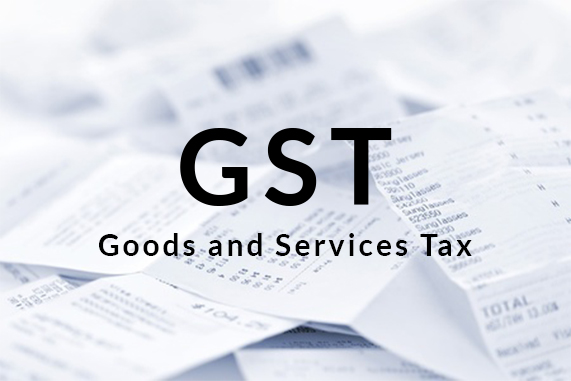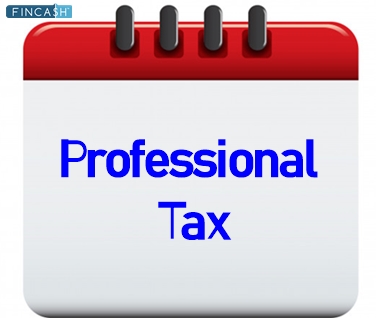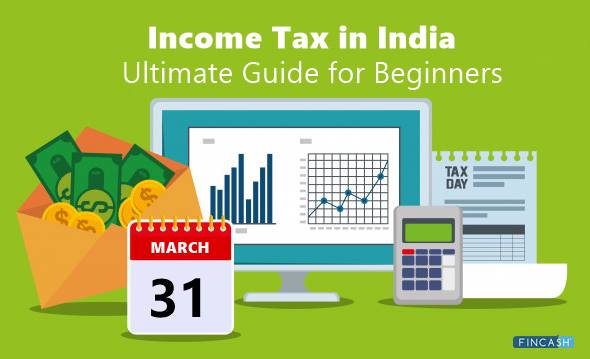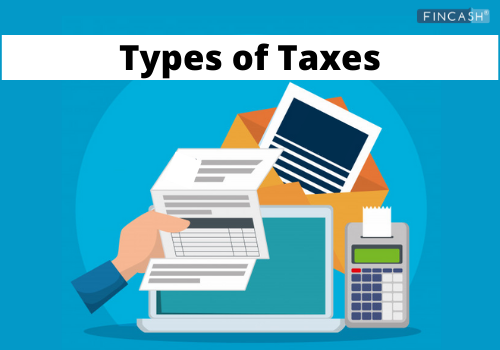
Table of Contents
Goods and Services Tax (GST) in India - An Overview
Goods and Services Tax (GST) is an Indirect Tax for the supply of goods and services in India. In other words, it is a tax that applies to most goods and services sold for domestic consumption.
The Goods and Service Act was passed on 29th March 2017 in the Parliament. It has now replaced many Taxes in India and it provides revenue for the government. The GST is a common tax and is taxed as a single rate across the nation and applies to goods and services including transportation services.
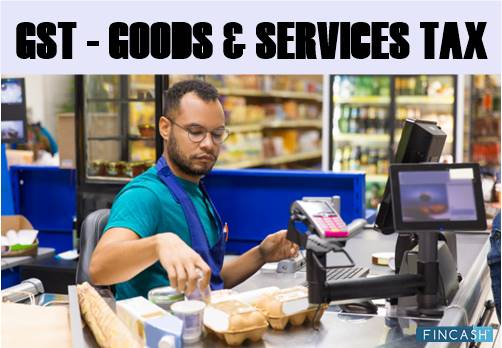
Direct Taxes no longer Applicable under GST
- Duties of Excise
- Central Excise Duty
- Additional Excise Duties
- Additional Customs Duties
- Special Additional Customs Duties
- Cess
- State VAT
- Central Sales Tax
- Purchase Tax
- Luxury Tax
- Entertainment Tax
- Entry Tax
- Tax on advertisements
- Taxes on lotteries, betting and gambling
How does GST work?
The Goods and Services Tax (GST) is applied to the cost of certain goods and services. Businesses that deal in goods and services add the tax to the retail price of their product and the consumer who purchases the product pays the retail price of the product plus the GST. The amount paid as GST is forwarded to the government by the business or the trader.
Types of GST
There are four types of GST and they are as follows:
1. Central Goods and Services Tax (CGST)
CGST is a part of the Goods and Services Tax (GST) and falls under the Central Goods and Service Act 2016. This tax is payable to the centre. This tax is charged as per the Dual GST regime.
2. State Goods and Services Tax (SGST)
State Goods and Services Tax (SGST) is charged on the purchase of products within the state. This falls under the state government. This tax is payable to the state government.
SGST has replaced taxes like Entertainment Tax, State Sales Tax, Value-added Tax, Entry Tax, cesses and surcharges.
3. Integrated Goods and Services Tax (IGST)
Integrated Goods and Services Tax (IGST) is applied on inter-state transactions. This tax is applied to the transfer of goods and services from one state to the other. The Central government collects this tax and distributes it to the state. This tax helps the states deal directly with the Central government rather than each state.
4. Union Territory Goods and Services Tax (UTGST)
Union Territory Goods and Services Tax is applied to the supply of goods and services to any of the Union Territories of the country. These are Andaman & Nicobar Islands, Daman & Diu, Dadra & Nagar Haveli, Lakshadweep and Chandigarh. This tax is applied along with the Central Goods and Services Tax (CGST).
Talk to our investment specialist
Advantages of GST
- The implementation of GST has brought in several advantages such as the birth of a common national Market
- Removal of Cascading tax effect
- Boost in exemption limit for small traders
- Indian goods and commodities can compete at a global level
- Benefit for small businesses through composition scheme
- Decreased tax compliances
- Everything related to GST is done online
- Increase in the Efficiency of logistics
Registration for GST
The registration procedure is simple and can be done online.
- Keep the GSTIN number and registered mobile number handy
- Check out ewaybill[dot]nic[dot]in
- In case you are a first-time taxpayer, you will have to register with ‘E-way bill registration’
- You will then be directed to a page that will require your name, your trade, your mobile number and your residential address. You will then receive an OTP on the registered mobile number for verification
- After the verification of the OTP, you will be asked to create a User ID
- Create a password for the same and your account on the GST portal will be complete
GST Tax Slab Rates for 2025
1. No Tax
The government has exempted certain goods and services of taxes.
The list of Goods are as follows:
| Goods with no GST Tax | Goods with no GST Tax |
|---|---|
| Sanitary Napkins | Bangles |
| Raw Materials used for broom | Fruits |
| Salt | Curd |
| Natural Honey | Flour |
| Eggs | Vegetables |
| Handloom | Chickpea Flour (Besan) |
| Stamp | Printed Books |
| Judicial papers | Newspapers |
| Deities made of wood, marble, stone | Rakhis made without the use of precious metal like gold, silver |
| Fortified milk | Saal leaves |
Services with no GST tax are:
- Hotels and lodges carrying a tariff below Rs.1000
- IMM courses
- Bank charges on Savings accounts and Jan Dhan Yojana
2. GST Tax Slab of 5%
The government charges 5% GST on the following Goods and Services.
The list of Goods are as follows:
| Goods with 5% GST Tax | Goods with 5% GST Tax |
|---|---|
| Skimmed milk powder | Coal |
| Frozen vegetables | Fertilizers |
| Fish fillet | Coffee |
| Tea | Spices |
| Pizza bread | Kerosene |
| Unbranded namkeen products | Ayurvedic medicines |
| Agarbattii | Insulin |
| Sliced dry mango | Cashew nuts |
| Lifeboats | Ethanol- solid biofuel products |
| Handmade carpets and textile floor coverings | Handmade braids and ornamental trimming |
Services with 5% GST tax are:
- Small hotels and restaurants with transport services like roadways, airways
- Standalone AC/Non-AC restaurants serving liquor, takeaway food
- Restaurants in Hotels with a room tariff lesser than Rs.7,500
- Special flights for Pilgrims (Economy Class)
GST Tax Slab of 12%
The government applies a tax slab of 12% to the following list of Goods and Services:
Here is the list of Goods:
| Goods with 12% GST Tax | Goods with 12% GST Tax |
|---|---|
| Frozen meat products | Butter |
| Cheese | Ghee |
| Pickles | Sauces |
| Fruit juices | Toothpowder |
| Namkeen | Medicines |
| Umbrellas | Instant food mixes |
| Cell phones | Sewing machines |
| Man-made yarn | Handbags including pouches and purses |
| Jewellery Box | Wooden frames for photographs, paintings, mirrors, etc |
Services with 12% GST tax are:
- Business class air tickets
- Movie tickets under Rs.100
GST Tax Slab of 18%
The government applies this tax-slab to the following list of goods and services
The Goods are as follows:
| Goods with 18% GST Tax | Goods with 18% GST Tax |
|---|---|
| Flavoured refined sugar | Cornflakes |
| Pasta | Pastries and Cakes |
| Detergents | Washing and cleaning items |
| Safety glass | Mirror |
| Glassware | Sheets |
| Pumps | Compressors |
| Fans | Light fittings |
| Chocolates | Preserved vegetables |
| Tractors | Ice-cream |
| Soups | Mineral water |
| Deodorants | Suitcase, briefcase, vanity case |
| Chewing gum | Shampoo |
| Shaving and after-shave items | Facial make-up items |
| Washing powder, detergents | Refrigerators |
| Washing machine | Water heaters |
| Televisions | Vacuum cleaners |
| Paints | Hair shavers, curlers, dryers |
| Perfumes | Marble and granite stone used for flooring |
| Leather clothing | Wristwatches |
| Cookers | Stove |
| Cutlery | Telescope |
| Goggles | Binoculars |
| Cocoa butter | Fat |
| Artificial fruits, flowers | Foliage |
| Physical exercise equipment | Musical instruments and their parts |
| Stationery items like clips | Few diesel engine parts |
| Few parts of pumps | Electrical boards, panels, wires |
| Razor and razor blades | Furniture |
| Mattress | Cartridges, multi-functional printers |
| Doors | Windows |
| Aluminium frames | Monitors and television screens |
| Tyres | Power banks for lithium-ion batteries |
| Video games | Carriage accessories for disabled, etc |
| Aluminium foil Furniture | Padding pools Swimming pools |
| Bamboo | Cigarette Filler Rods |
| Bio-fuels Powered Buses | Second-hand large and medium cars and SUVs |
Services with 18% GST tax are:
- Restaurants in hotels with tariff at over Rs.7,500
- Actual bill of hotel stay below Rs.7,500
- Outdoor Catering (input tax credit to be available)
- Hotels, inns, guest houses, which have a room tariff of Rs.2,500 and above but less than Rs.5,000 per room per night
- IT and Telecom services Theme parks, water parks and alike
GST Tax Slab 28%
The government applies a tax-slab rate of 28% for the following items
The Goods are as follows:
| Goods with 28% GST Tax | Goods with 28% GST Tax |
|---|---|
| Waffles and wafers coated with chocolate | Sunscreen |
| Dye | Hair clippers |
| Ceramic tiles | Wallpaper |
| Dishwasher | Automobiles Motorcycles |
| Aircraft for personal use | Pan masala |
| Tobacco | Cigarette |
| Bidis | Cement |
| Yachts | Weighing machine ATM |
| Vending machines | Aerated water |
Services with 28% GST tax are:
- Race club betting & gambling
- Actual bill of hotel stay above Rs.7,500
- Five-star Hotels
- Entertainment & Cinema
- Hotels, inns, guest houses, which have a room tariff of Rs.5,000 and above per room per night
GSTIN – GST Identification Number
GSTIN is a 15-digit distinctive code that is provided to every taxpayer. It is provided based on the state you live and the PAN.
Some of the main uses of GSTIN are as follows:
- Refunds can be claimed
- Loans can be availed with the help of the number
- Verification process is easy with the help of the GSTIN
GST Return
A GST-Return is a document that contains the information of the Income that a taxpayer should file with the government authorities. Registered traders are to file their GST Returns with details regarding their purchases, sales, input tax credit and output GST.
Countries that Collect GST
The first country to bring in GST was France. It implemented GST in 1954 and since then about 160 countries worldwide have roped in GST. Some of the countries with GST are Canada, Australia, Singapore, India, Vietnam, Monaco, Spain, Italy, United Kingdom, Nigeria, Brazil and South Korea.
GST Certificate
Business with an annual turnover of Rs. 20 lakh and more are required to register under GST system. The GST registration certificate is issued in Form GST REG-06, which is an official document issued by the concerned authorities for a business enrolled under this system. The certificate is available only in digital form, which means there is no physical copy issued.
GST Certificate contains following data:
- GSTIN
- Legal Name
- Trade Name
- Constitution of Business
- Date of liability
- Address
- Period of Validity
- Types of Registration
- Particulars of Approving Authority
- Details of the Approving GST officer
- Date of issue of the certificate
- Signature
Inception of GST
The idea to bring GST into an active movement in India dates back to the beginning of the 21st century.
Here is the timeline:
| Year | Activity |
|---|---|
| 2000 | The government headed by Atal Bihari Vajpayee were in talks about the GST. A committee was set up to plan the course of action headed by Asim Dasgupta, Finance Minister of West Bengal. |
| 2003 | A task force was set up under Vijay Kelkar, the then advisor to the Finance ministry. Tax reforms were to be suggested by the task force. |
| 2004 | Vijay Kelkar suggests replacing the tax regime with GST. |
| 2006 | Then Union Finance Minister, P.Chidambaram, proposed the implementation of GST by April 1, 2010, during the budget of 2006-07. |
| 2008 | The committee set up, submitted a report regarding the roadmap of GST if implemented in the country. |
| 2009 | The committee prepared a paper for discussing GST. Finance minister Pranab Mukherjee announced the basic structure for GST. |
| 2010 | Implementation of GST was postponed to April 1, 2011. |
| 2011 | The Congress Party introduced the Constitution (115th), Amendment Bill, for the implementation of GST. The Bill was passed to a standing committee after facing resistance from the Opposition. |
| 2012 | Meetings were held with state Finance ministers and the deadline for issues to be resolved is set for December 31, 2012. |
| 2013 | P. Chidambaram made the provision of Rs. 9,000 cr to compensate for losses due to GST. |
| 2014 | Just as the Standing Committee cleared GST for implementation, Lok Sabha dissolved and the Bill lapsed. New Finance Minister, Arun Jaitley, introduced the Constitution (122nd), Amendment Bill, in the Lok Sabha. |
| 2015 | A new date was set for the implementation of GST as April 1, 2016. GST Bill was passed in Lok Sabha but not in Rajya Sabha. |
| 2016 | Rajya Sabha passed the Constitution Amendment Bill. The GST council agreed on the four slab structure with an added cess for luxury and sin goods. |
| 2017 | GST was finally implemented on July 1, 2017. |
Conclusion
Well, Goods and Services Tax (GST) did face some flak as people had certain concerns regarding their spending capacity. However, recently it has been getting a positive response from the consumers in India because of its success.
All efforts have been made to ensure the information provided here is accurate. However, no guarantees are made regarding correctness of data. Please verify with scheme information document before making any investment.
